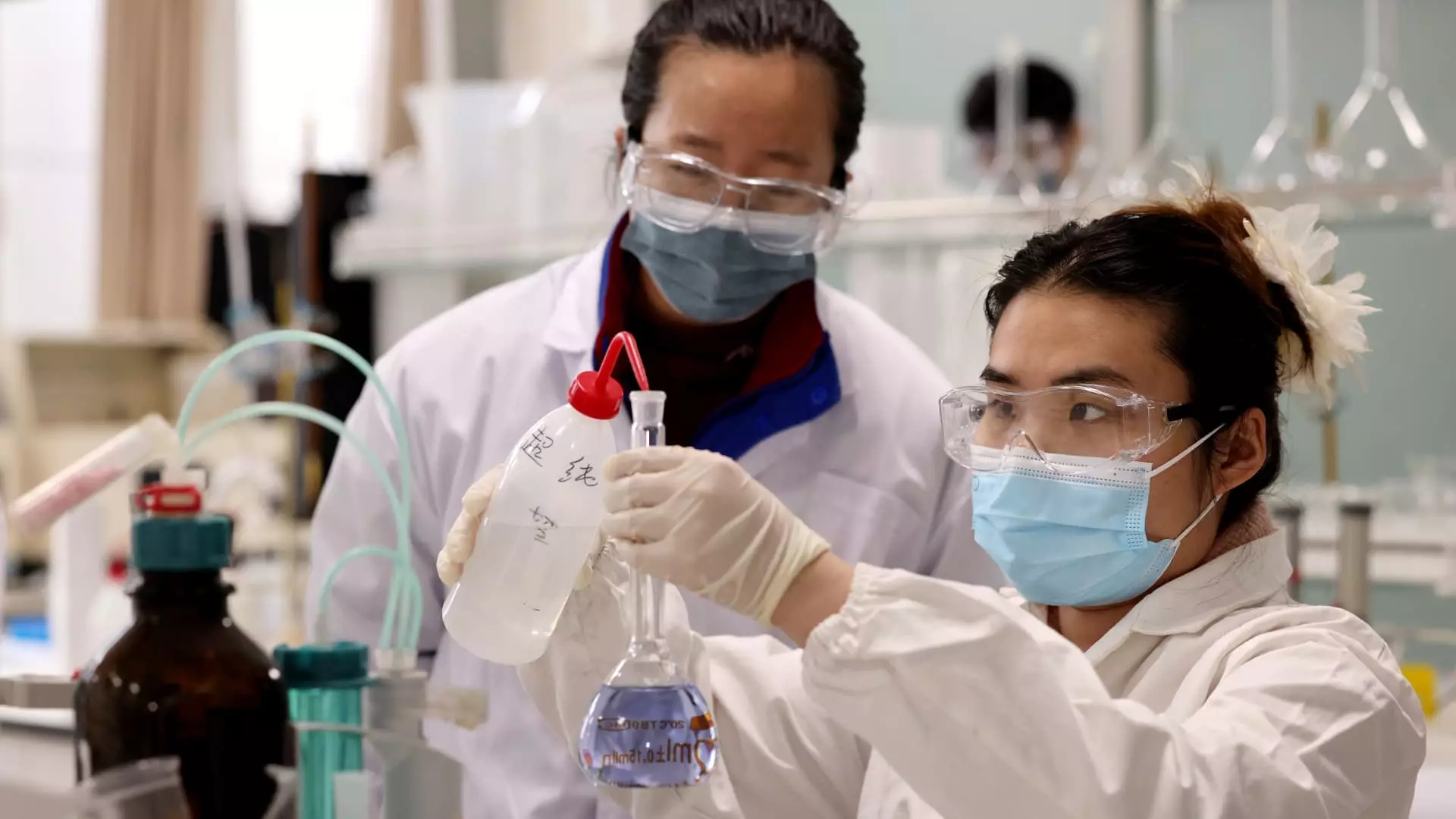The discourse surrounding U.S.-China rivalry often revolves around artificial intelligence, overshadowing an equally significant race: biotechnology. Emerging reports reveal that China is not merely advancing; it is poised to potentially eclipse the United States in this critical sector. The Harvard Belfer Center for Science and International Affairs has highlighted that of the five key technology areas—AI, biotechnology, semiconductors, space, and quantum technology—China is leading the charge in biotechnology, a field that has monumental implications for health care, agriculture, and economic power.
It’s not merely about advancements in science or medicine; it’s a struggle for global influence and supremacy. The report states that the tight and “narrow U.S.-China gap” in biotechnology suggests that a shift in dominance could occur more quickly than we might expect. This rapid ascent of China should serve as a wake-up call for policymakers in Washington. The U.S. is still technologically advanced overall, but complacency is dangerous. The Chinese government’s long-term, state-backed initiatives have allowed its biotech sector to flourish in ways that the U.S. seems ill-equipped to match.
Government Strategy: Where the U.S. Falls Short
While the U.S. government is still fumbling with the formulation of a cohesive biotechnology strategy, China has decisively embarked on a well-coordinated path since as early as 2007. The stark comparison between the two nations in terms of policy support and execution is disheartening for those who hope to see American innovation lead the way.
As highlighted by the U.S. National Security Commission on Emerging Biotechnology in its recent report, there is an urgent need for a dual approach: accelerate American innovation while simultaneously impeding China’s advances. This request for a substantial financial commitment—at least $15 billion over the next five years—underscores the gravity of the situation. The danger is not merely losing a competitive edge but of entering a new era where the U.S. will be trailing in a fundamental area that could determine future economic standings and international alliances.
The Rapid Evolution of China’s Biotechnology Industry
The trajectory of China’s biotech industry speaks volumes about its potential to reshape global health care dynamics. International giants, particularly from the U.S. and Europe, have begun investing heavily in China-developed drugs with the expectation that these innovations will soon change the treatment landscape for diseases like cancer. This is not just a speculative venture; it’s a calculated investment in the future, and the implications are profound.
The Harvard assessment points out several key advantages that China possesses in this battle. Its dominance in pharmaceutical manufacturing allows it to produce drugs more efficiently and at a lower cost. Furthermore, China’s nimble regulatory framework has enabled it to expedite processes that can otherwise become bogged down in American bureaucracy. Cynthia Y. Tong from the Harvard Belfer Center has aptly pointed out this advantage, illuminating the slower pace of U.S. innovation due to regulatory hurdles.
In stark contrast, the U.S. biotechnology landscape is grappling with decline, with layoffs and abandoned labs becoming all too common in biotech hubs like Cambridge and Boston. This raises critical questions: How can the U.S. reclaim its standing? And can it do so without a strategic overhaul?
Global Biotechnology: A Collaborative Yet Competitive Arena
Interestingly, the narrative that biotech’s future is solely a U.S.-China conflict may overlook the reality of globalization. Insilico Medicine, a startup striving to revolutionize drug discovery through artificial intelligence, exemplifies this phenomenon. With operational teams situated across various countries, including China, North America, and the Middle East, it represents a shift toward a truly globalized approach to biotechnology. However, this global framework raises additional complexities and challenges, posing the question of how collaboration and competition can coexist in this crucial field.
As demonstrated by Insilico’s AI-driven insights, China’s burgeoning biotech sector, collaborative networks, and willingness to embrace innovation may well define future breakthroughs. It’s a hard pill to swallow for those who wish to see the U.S. retain its crystalline supremacy in technology and innovation. Over time, as Chinese companies navigate international regulations and resource availabilities, they may position themselves as indispensable players in the global biotech marketplace.
The reality is daunting: if the U.S. doesn’t adapt its strategic game plan, it risks transforming from a leader to a bystander in the burgeoning biotech landscape. The long-term repercussions of such a shift could be far-reaching, affecting medical advancement, economic prosperity, and geopolitical influence for years to come. In the race for biotechnology supremacy, the stakes have never been higher, and the time for action is shrinking dangerously thin.

